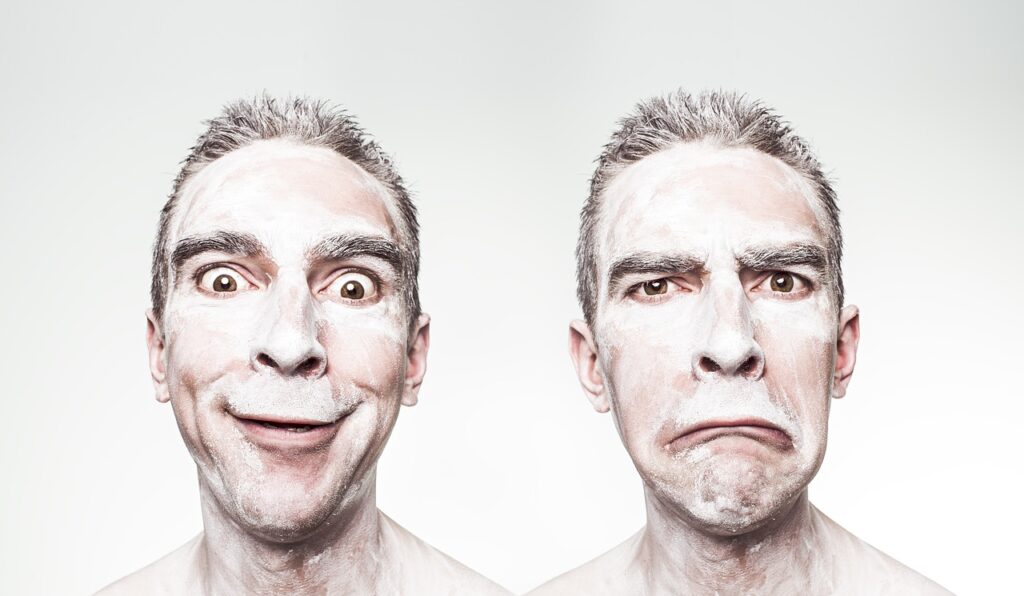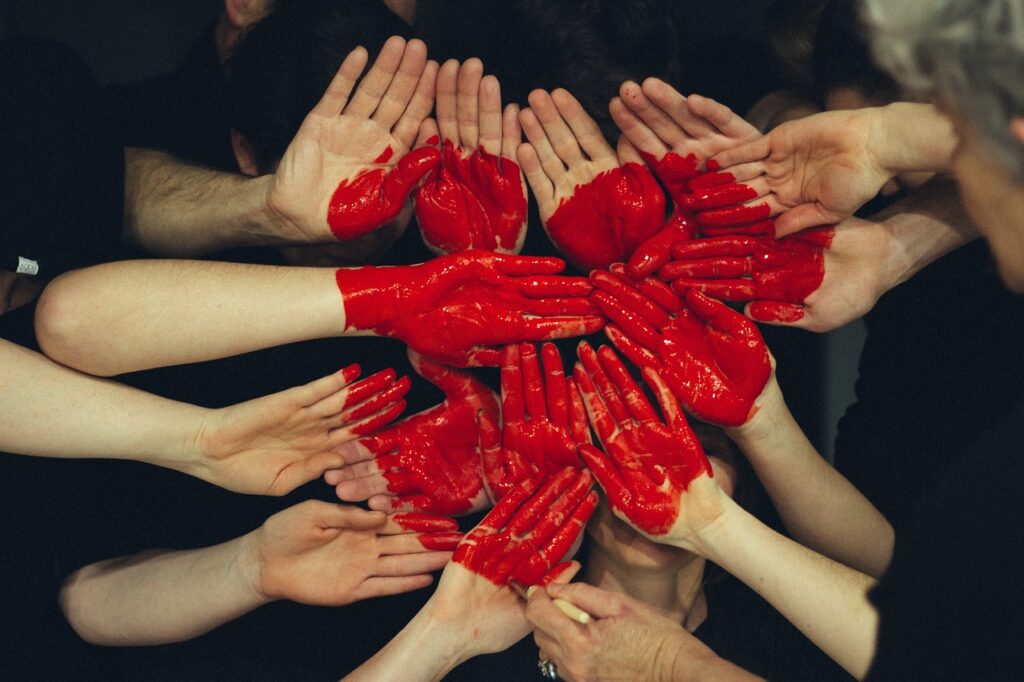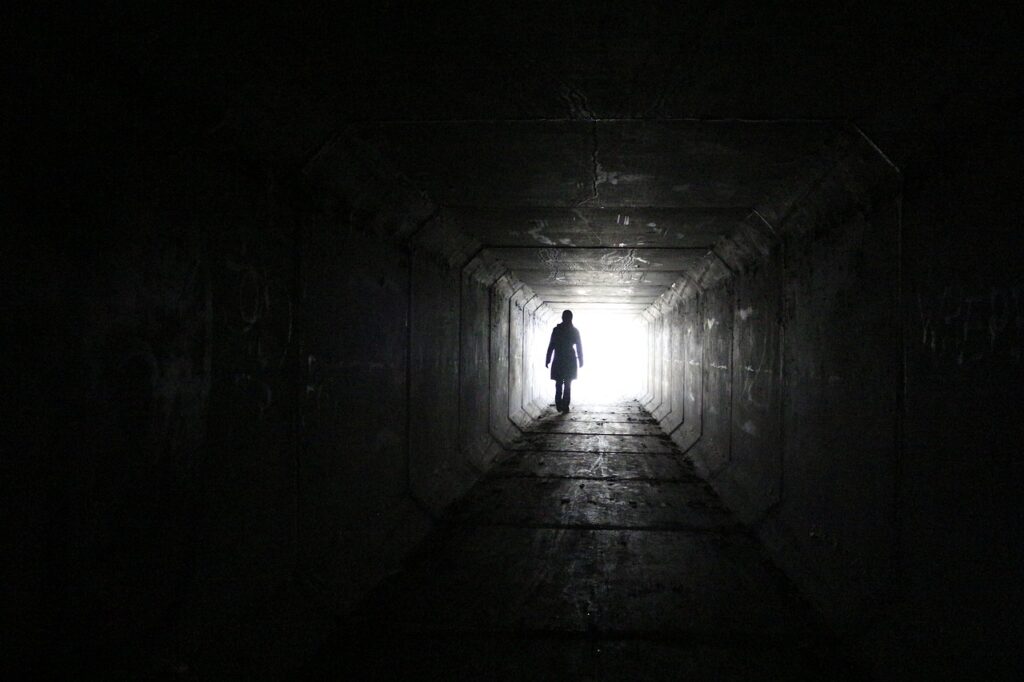What is the Purpose of Life?
Looking up blank do you, sometimes, wonder what is the true purpose of life? Many of us do. The answer would have been easier had there NOT been so much confusion between our GOALS and PURPOSE. Yes, there is widespread confusion all around: in purpose of life quotes, articles and other literature available. In this article, we’ll strive to get things clearer so that the answers, rather than questions, start popping up more easily in our mind.
Table of Contents
Introduction
How can I be happy? What do I need for happiness? When can I find peace? These are some of the most common questions that arise when we, consciously or unconsciously, think about our life’s purpose. Many more related questions perplex people of all ages. While the answers are simple and straightforward, they are not always clear because of the confusion prevailing in our minds. The more confused we are about our life purpose, the cloudier our understanding of what we truly need, and the more misplaced our priorities become. This article aims to clarify these fundamental confusions.
When it comes to dreams, goals, and the purpose of our life, we sometimes trade one for the other, believing them to be the same. As a result, we remain rudderless for most parts of our lives, and in the end, we regret and wonder what went wrong. It’s time to end this confusion. Let’s start now.

Dreams Vs. Goals
Do you know the difference between dreams and goals? Dreams are vague and often elusive ideas or images of a future destination in life where we want to be. They are not concrete or detailed enough to be actionable. However, they serve as the foundation of inspiration, the first step towards setting and achieving our goals. When we convert big dreams into goals and achieve them, we are called visionaries. Until that time, we remain dreamers. But dreaming is the essential first step to start doing something big. It inspires and motivates us to take the next steps of goal setting and achievement.
Goals Vs. Purpose
Goals are small, tangible results that we aspire to or aim for. Purposes are the underlying reasons for which we strive to achieve these goals. For example, we may want to score well in exams or achieve success in a project to feel accomplished or make our loved ones happy. Here, scoring or achieving well is the goal, and feeling accomplished or making others happy is the purpose behind that goal.
While juggling the goals and purpose of our life, we often make two major mistakes:

First mistake: Thinking that our purpose lies at the end of our goals. We believe we will be happy only if we earn a lot of money, score big in exams, or have a great relationship. Here, happiness is the purpose of these goals, but we make the mistake of placing happiness at the end of achieving these goals. So, what about being happy while actively working to earn money or score big in exams? Happiness at work?!!! We either don’t think much about it or simply push it away because we fear complacency if we find happiness at work. This confusion leads us to relentlessly run after our goals like a thirsty runs after a mirage.
Subscribing to the same fear, employers create working conditions devoid of happiness, emphasizing effort while overlooking employee well-being. We forget to experience happiness as we run and make others run. In the whole process, we invite a demon. A demon called Stress. We allow Stress to eat up much more than what Happiness could give us upon reaching our goals. So, plain math suggests that our happiness remains deficient even after winning our goals. And then, we can’t stay there for long either. I have “miles to go before I sleep and miles to go before I sleep”. The next goal awaits. We continue our journey, creating more deficits over time, pushing ourselves to a point where stress starts breaking down our health. We have reached a point of no return.
What is going wrong in all this? The mistake is putting purpose at the end of achieving our goals. ‘I’ll be happy if……… (something happens).’ This blank space shows that we make happiness conditional on achieving our goals. This is not correct. Happiness needs to be with us all the time. Remember, happiness is a purpose of life, not a goal. So, in the above example, we need to stay happy throughout the process of earning money, preparing for exams, or seeking and working for a great relationship.
Change the approach and see the results! Purpose does not lie at the end of the process; rather, it fills our lives everywhere and all the time. It is not conditional on achieving a goal; instead, it needs to persist even in the face of the biggest obstacles to our goals.

Second mistake: We often prioritize goals over our purpose. After achieving one goal, we move on to next, and next, and next. For example, we defer happiness and make it conditional on achieving excellent marks in exams. After attaining those results, we set our next goal of securing a dream placement, then having a great marriage, followed by having children, their parenting and so on. All the while, we’re deferring our purpose to the accomplishment of our next goal. Every small milestone or goal becomes the reason for deferring our purpose.
It is not wrong to set one goal after another. However, the problem arises when we mistakenly defer our purpose every time. Every time we set a new goal, we defer our happiness to achieving our new goal. This is a deeply ingrained habit, and the ultimate outcome is: We keep postponing our happiness to the end of our life.
What do we get in the end? Stress for 99% of our lives! But we had set out on the journey of life seeking 100% happiness, hadn’t we? We lost our way by deferring happiness all the time. The goals or achievements are not our gains; they are just the means. We end up with a life full of stress and its companions: poor physical and mental health. We wanted happiness but found ourselves consumed by stress for most of our lives.
The Four Broad Purpose of Life:
There are four broad purposes of life. They are formless but ever-present, providing the foundation upon which all our dreams, aspirations, goals, and work rest. Whatever we do or crave is only a means to give shape to one or more of these otherwise formless purposes.
Let’s now take a tour through the FOUR purposes of life, one by one:
1. Peace:

Why do we work so hard in our lives today? So that we can rest later. Sounds great! Now, why do we quarrel or fight? To bring lasting peace? Yes, many people on this planet still believe in it. A crusader who is zealously working towards his goal does it with the belief that their action would bring ultimate peace and happiness. A terrorist bombing scores of harmless people to death also does his work to protect his ideology or cult. And whatever their ideology or cult may be, their objective is to bring lasting peace. A killer does not kill to kill. He does it to solve some problems. This means he is trying to find peace at the end of it.
We all work for peace. Even ‘Salvation,’ often considered the most important of life goals, has eternal peace as its objective. Peace is one of the most important driving forces, alongside Happiness, that propels us to work in various ways.
But in all this, we are repeating the mistakes we discussed before. The mistake of putting peace at the end of everything. Remember, peace does NOT lie at the END. It lies ALL ALONG THE WAY. We don’t get peace by doing something. We are peaceful all the time, doing or not doing anything. Peace is an innate quality. Our body mechanisms work at their best when at peace. As most of the time we are working for one goal or another, does it mean we stay without peace most of those times?
The important learning in our life is to learn to stay peaceful all the time, regardless of any upheavals outside. It may not sound easy initially, but that is only due to our conditioning since childhood. Thankfully, we can change that through a little meditation, mindfulness & thought reorganization. All of these can be done regardless of age, place or work.
2. Joy:

You have an upcoming get-together with old dear friends after a very long time. You are excited and look forward to a lot of fun. Now, what happens if someone falls ill in your family, and you cannot attend the event? You are disappointed or even sad, perhaps. But why are you disappointed or sad? You think you lost the opportunity to have fun, right? Now sitting disappointed, suddenly, you come to know that you have won a big lottery! A real one! What happens? Your happiness explodes suddenly. The reason for your happiness has shifted.
Life throws up many things, events or people that make us happy. Our happiness does not depend on one event, thing or person alone. But how often do you find someone who is dejected for one reason or another. And then there are even greater souls who hold on to their cause of dejection so strongly that they resist the onset of new events or overtures to make them happier.
Going back to the earlier event, think of a person who is glad that the illness in his family happened just before the event and not during the event when he would have been away. Probably, he would have missed the first-aid or emergency measures that were taken to save the life of his dear one at that time. He is thankful for whatever happened. It all depends on your values and priorities.

A person can be happy in the same situation in which another is disappointed or even sad. The reason for this difference is the underlying thoughts and associated feelings that emerge within us when something happens outside. It is these thoughts and feelings that make us choose between happiness, disappointment or sadness for the same event.
So, let us understand one thing clearly. Our happiness DOES NOT LIE at the end of an event. It lies in our thoughts and feelings inside of us.
We do not get happiness on achieving something. We stay happy irrespective of the achievement. Happiness is a state and not an end. If we keep happiness conditional to the achievement of some goal, we will never be happy as one goal will be replaced by another and another and another… Life is not about gaining momentary happiness between these goals and staying without it most of the other times.
Contentment Vs. Complacency
One common question that could arise is how do we work hard and steadfast towards our goals if we are peaceful and happy even without achieving them? Now, this is a misconception. We have been conditioned to think that if we are peaceful and happy, we become complacent and lose our drive to achieve our goals. The question is answered the moment we differentiate between complacency and contentment. Joy, Happiness, or Contentment on one hand, and Complacency or Laziness on the other, look similar but they are entirely different things:
Complacency or laziness is either a lack of interest or work towards the goals or taking the achievement of goals for granted. It is aversive and takes us away from the goals. Contentment, on the other hand, is motivating and takes us towards our goals. A Content or Joyful person can continue to work diligently to achieve the goals, staying happy all the time. Their happiness is not dependent on the results; it is in the journey. A joyful person can work much more efficiently towards the achievement of their goals. Their physical and mental health stays much better, and in the long run, they enjoy and live life to the fullest.
3 Love:

Though peace and joy appear to be the most important elements, there is yet another one, which is equally important, that binds us all: Love. Love is the cement that holds together all the individual elements of the universe. Just like individual bricks, when joined together, build huge monuments, Love is a binder and joins together our individual selves into a fledgling community. Not just a community of humans but also our environment, our ecosystem, and even our relationship with the inanimate objects of the universe. Love brings shape to relationships of any form. In the absence of love, we individuals will flounder in the darkness of apathy and gloom.
How much do you think this binder named love is getting weaker with time? Enormously! Just look around to see. Families are getting smaller. Divorces are getting more rampant. Cut-throat competition has become the order of the day. Greed and Self-Centeredness are the driving forces of today’s businesses. Hatred between individuals and communities is growing in the name of awakening and community solidarity. Fear of annihilation is causing a sense of desperation. To an increasing number of people, fighting or war appears to be the only way to resolve disputes. The list goes on… at every level. The cement of love is weakening. The binder which joined the insignificant individuals to form colossal monuments is disintegrating.
Now, the million-dollar question is: who will be the worst sufferer of this degeneration? It’s ME, and no one else. If I think that I could gain by the suffering of others, I am simply being naïve. Fear or hatred, just like love, flows like air. Nature has not made us airtight. When there is suffering anywhere, even in our enemy’s camp, it WILL travel back to us. It’s only a matter of time. And when it does, the catastrophe comes full circle.

Love, on the other hand, has the power to undo this damage. Like fear or hatred, it flows as well. If we create love somewhere, it flows around to encompass everything. When you cuddle your child, when you see your pet playing with you, or when you sit with your most loved one, doesn’t everything suddenly appear to be so calm and beautiful around? Love is extremely powerful, much more than you even imagine. It has the power to bring us back from the precipice.
Love works at three levels: Loving Myself, Loving Others and Universal Love. We need to integrate and balance each of them in our precious lives.
Love Myself
We need to love ourselves first; it is the first essential precondition for other levels to function properly. But, just like any good thing, too much or too little of it causes harm. If you love yourself too much, you become selfish; if you love yourself too little, you become too conforming. Conforming behavior damages in two ways: first, you are burnt out and still not valued by others; secondly, you disempower others by overperforming for them. For example, in parenting, too much love can spoil your child. The key lies in balancing things out.
Start loving yourself today! Allocate at least one hour every day, preferably at the beginning of the day, as your ‘me-time.’ This is your ME-HOUR; the time to recharge yourself for the next 23 hours. It’s as compulsory as brushing your teeth, eating food, or sleeping—just like the need to charge your phone. Use this time to nourish yourself, dividing it between mental nourishment and physical exercises. Typically, half an hour of physical exercise is adequate for normal healthy living. Allocate the remaining time for mental nourishment, involving mindfulness practices and learning or revisiting the Seven Major Dimensions of Life (WIRSHEF): Work, I (Myself), Relationships, Spiritualism, Health, Environment & Finances. Remember, our most important goal is to balance ourselves across these seven major dimensions of life.
By doing this, your efficiency increases, and at the end of the day, you achieve much more. Additionally, you feel more fulfilled. You start winning from Day 1. Get started today before vacillation gets the better of you again! Your ME-HOUR is non-negotiable. Let even the biggest excuse not work here. If you think you can’t do it because you’re too busy, in reality, you are having a problem prioritizing. Remember, taking this one hour out increases your efficiency so much that it more than compensates for the time lost in your busy schedule.
Love Others
This is the meaning we often associate with Love. However, loving others is a much deeper act than mere deep liking or giving affection, which we commonly think love to be. Check yourself: How do you love your dearest ones?

True love for others comes from a deep understanding of them. An understanding that brings you closer to their pains and discomforts and away from your own definition of right and wrong or judgments. This deep understanding results in empathy – you realize exactly what the other person is feeling. The more empathetic you become, the closer you get to their hearts. You find that your love flows unhindered to them, and they also start loving and caring for you. When this unconditional love is balanced with assertiveness, the potion of empowering others is complete. You become a powerhouse of empowerment.
Universal Love
And it does not end here. The next level is when your energy of love spreads to every animate and inanimate thing around you, reaching far and wide to every bit of the Universe. At this stage, we witness the union of our individual self with the universal self – the most exalted goals of any spiritual practice. Self-awareness reaches its zenith, and mind power explodes, all immersed in an infinite medium of universal love.
Another offshoot of universal love is charity, where we work for the happiness and good of others without thinking about our immediate needs. Instead, we give away some of our belongings: time, money, effort, influence. This fulfills the deeper human needs of the giver that reside within all of us and brings about a deep-seated satisfaction to our life.
The Acid Test

When thoughts with any negative feelings start in our brain, the first thing that gets blocked is our energy of love. Once the flow of love is blocked, other problems in relationships start to surface one by one. Hence, the first and the most powerful point of intervention is to check whether my current thought is negative or causing any discomfort or pain to me. This is the ACID TEST. If the answer is yes, the downslide has begun. I’ll need to act at once. Halt these injurious trains of thoughts; break the chain immediately and replace it with any powerful constructive thought. Do this a few times and see the magic unfold! This is power! The power to bounce back to life.
4. Wisdom:
Look around yourself. Look at the people surrounding you in different walks of life. How many of them do you consider wise? Very few, right? Now, how many of them do you think are educated, knowledgeable, and even intelligent? You will find many. Then what makes the difference? Wise people are living their lives closest to their purpose. They are not gullible, not overwhelmed by new knowledge inflow, not going overboard trying to race against people or things around them. Despite the stressors all around, they are at ease; relaxed. They are not mindlessly consuming new information or knowledge. Neither are they laid down by paralysis of analysis. All the time, they are simplifying new knowledge and integrating it into their existing knowledge. They’re growing all the time, learning new things but are still stable, calm, and collected.
So, that was a picture portrait. Now, let’s look at it a little more deeply. Generally, there are different pathways and stages of learning: DATA (raw facts & figures), INFORMATION (a collection of data that enables drawing meaning out of it), EXPERIENCE (learning by sensory immersion in a situation), INTUITION (a hunch or a gut-feeling which comes spontaneously without any known reason), KNOWLEDGE (combining information with intuition and experience), and WISDOM (judging and simplifying diverse knowledge to integrate it with the holistic view of life).

In real life, most people don’t see this. How often do you find people getting swayed just by bits of various information pouring in from all sources? We call such people gullible. Due to their gullibility, they are riding free emotional roller coaster rides every now and then. They are open to being controlled and manipulated by others around them. The only problem is their inability to take the information or knowledge to the level of wisdom. It is just a matter of a few small steps which, with practice, soon becomes a habit. Wise men do not walk down from heaven; they go up there by scaling the ladder of learning.
What is the difference between Wisdom and Knowledge? Wisdom is simplifying knowledge and integrating it into our broader picture of life. It is about judgment in picking things up and letting others go by. While knowledge is gathered from education and learning, wisdom dawns when we fit in this knowledge into the larger schema of our life. With practice, this happens on its own, and we do not do it consciously anymore. Our education system infuses us with lots of information and some knowledge on a variety of things, but there is almost nothing that teaches us to cultivate wisdom out of them.
Why do we need Wisdom?
There are two major reasons:

First, Wisdom guides accurate decision-making and judgment. Imagine yourself steering a ship through the vast open sea, surrounded by waves in every direction, making it challenging to know your course. Each path looks alike, yet you must proceed, relying on a compass for navigation. Wisdom serves as that compass, indicating whether you’re on the right course. It shields you from veering into wrong pursuits or endeavors which don’t suit you. In a world full of knowledge and skills, it’s very easy to lose your way. Exposed to the huge abundance of information, making the right choices becomes mandatory to propel you toward your goals while also keeping the essence of life’s purpose intact.
Second, Wisdom enhances Personal Stability. It involves maintaining steadfastness, much like a large ship sailing through turbulent seas where waves attempt to divert it in various directions. Despite the currents and waves pushing and pulling in different angles, the ship persists in its course. Similarly, amidst the complexity of expectations, temptations, desires, duties, manipulation, persuasion, and other influences emerging from all sides, it is important to protect yourself from emotional and cognitive turmoil. This is achieved by anchoring to the right principles and maintaining stability.

In short, wisdom is to LIVE OUR KNOWLEDGE. It is the ability to discern things despite the overflow of knowledge and information all around. It enables us to make the right choice and discard the rest from this maze. Wisdom is the inclination to streamline knowledge and information, viewing things from a broader life perspective. It is walking towards light despite there being darkness all around; an ability to not lose sight of things underlying an action or an event. Developing wisdom is not challenging; it is merely forming a habit by which we learn to live our knowledge from within.
Conclusion
What is the Purpose of Life then?
Plain and Simple: To attain and sustain Peace, Joy, Love, and Wisdom. We need NOTHING to be Happy. Neither are there any CONDITIONS which brings Peace. Our Love doesn’t need RECIPROCATION. Neither is Wisdom only a possession of the SAINTS. These qualities are not linked to achieving something or meeting some conditions; they are free and ever-present. They exist before setting goals, persist during the journey, and remain after achieving the goal. It is only when we don’t lay conditions, do we have them for most of the time in our lives. And when we do that, apart from being deeply anchored in our life purpose always, our way of approaching things change as well. This approach transforms our perspective and raises efficiency manifold. The result is infinitely deep stability, highly elevated performance and an equally inspiring social attractiveness.
FAQs
The true purpose of life is to find feet amidst all the turmoils in life. Broadly, it boils down to four major dimensions: Peace, Joy, Love and Wisdom.
Peace is a state of calm. Genuine Peace results when we do not lose inner calm despite facing external troubles. The ways of getting peace and retaining it are similar. Mostly, they remain around developing inner calm by regular practice of Relaxation and Self-Awareness and managing external situations. The better you are at managing stressors, the easier it is to say at peace.
Expectations are considered to be one of the most powerful factors that result in loss of mental peace. You expect an outcome from a situation or a behaviour from a person. Both of these factors are external and not in my control. Yet expecting results leads us to rest our mental peace on those things. Hence, most of the time we see our expectations are not met and we suffer. Our right is up to work and results have to be left on their own.
The only place to find peace is within yourself. Every other place or person or thing we run to is the only means to this end. Inner peace can well be found without running to these external agencies. Rather, it is better to go for Self-Awareness building, Relaxation and a basket of other measures which could lead to a more permanent personal peace.
Happiness is an euphoric state when our mind is joyful and our body is filled up with relaxing hormones and neuro-transmitters. Happiness can be achieved through several sources but the most important and powerful source is inner motivation. Happiness is more stable when derived from inner motivation.
Ways of find inner happiness are nearly the same as ways of finding inner peace as both of them are related. Relaxation, Self-Awareness, Acceptance and some more measures need to be taken together for inner joy.
The most important and powerful source of happiness is the inner self. Increase your Me-Time and utilize it in developing Self-Awareness and Personal Development.
Your happiness lies inside you. Any other external reason which we think make me happy are mere agents which propel me to create the feeling of happiness within myself.
Love is a feeling of deep care with affection. Love can be directed to myself, others and the entire universe as well. For love between attractive member of opposite sexes, there may be some or a lot of sexual elements involved as well. The sexual element is largely chemical driven by which we feel aroused by seeing, hearing, touching or even thinking of an attractive member of the opposite sex. True Love generically means powerful and unflinching emotion of love. True love can be at any of the three levels: self, others or universal.
Wisdom is the ability to see through things. The ability to simplify and integrate diverse knowledge into a common or a unique view of life.

